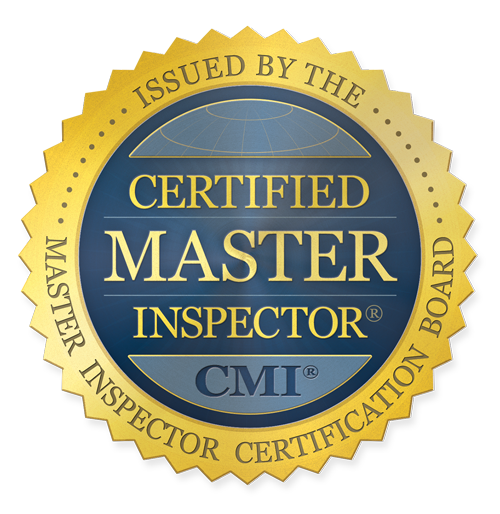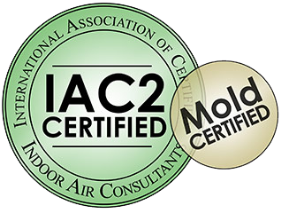Yes, it is true we are in the midst of a seller’s market. The lack of inventory and escalating sales prices make things more competitive, setting the stage for cagey buyers. However, do not let home buying jitters get the best of you when making sound decisions about such a significant investment.
Your “just right home” is out there, but you should never waive a home inspection to seal the deal.
Risks of Waiving a Home Inspection When Buying a House
There are several risks of waiving a home inspection. First and foremost is the safety of the occupants and the structure (more on that below). However, buyers who opt to purchase a home without a complete professional home inspection also put themselves at risk for other serious scenarios, all of which can cost them tens of thousands of dollars or more.
1. Structural collapse and other dangers
Home inspectors carefully and objectively evaluate a house from top to bottom, analyzing a range of structural and systemic components. The most important of these include:
- The foundation and home/lot drainage
- Roof and structural integrity
- Electrical and plumbing systems
- HVAC system
- Insulation, ventilation, and moisture control
- Evidence of pest or mold/mildew infestations
- Damage or issues in siding, drywall, trim, grout/caulking, or other factors that compromise the exterior or interior of the home
Failing to schedule an inspection means you could be moving yourself, your loved ones, and your furnishings into a home that is primed for a roof collapse or other structural damage over the next storm season or two. In addition, unforeseen electrical issues (such as overloaded circuits, faulty wiring, or wiring not installed to code) also elevate the risk of an electrical fire.
If there are major red flag issues, the home inspector report allows you to negotiate for pre-sale repairs. Or, you might negotiate a lower sales price (repair credits) to accommodate repairs or replacements essential to maintaining structural integrity or meeting current safety-relevant building codes. Ultimately, the home inspection report means you buy a home with peace of mind or pass on a deal that was a money pit waiting to happen.
2. Buying high when you could have bought low
Savvy home buyers and real estate investors are familiar with the signs of a home begging for a home inspection. Why? Because they know the inspection report yields the expert information they need to negotiate a lower sales price. The older the home and the more visible the “signs” of potential issues are, the more likely the inspection is to yield critical information about repair/replacement issues.
That information can be used to drop a “comped” sales price at the mid- or top-range of the market to a price reflecting the house’s age and repair requirements.
The most common signs/indicators the home needs critical work are:
- Missing tiles/shingles or a roof that is obviously dilapidated
- Moss or algae on the roof
- No proof from the seller that the roof has been maintained or replaced in the past ten years
- Stains with irregular boundaries on exterior walls or ceilings
- A damp, musty, or “funky” odor
- Interior finishes that are notably 15-year or more out of date
- “Original” historical or retro fixtures (lighting, plumbing, switches)
- Lack of GFCI or three-pronged (grounded) electrical outlets
- Signs of moss, algae, or mold/mildew growing on exterior foundation perimeters or in landscape beds that border the home
Any of these signs serve as “red flags” that the home needs work and might not pass a home inspection.
If that is the case, a pre-purchase building inspection is essential to determine what level of damage exists and what necessary structural or code-specific repairs are needed.
3. Major repairs right off the bat
The problem is, you really want that home. So, a real estate agent or friend suggests making an “as-is” offer to seduce the buyers. That way, you have the best of both worlds: the home you want and accurate knowledge of what may be wrong after the COE. You can always schedule a home inspection afterward, right?
We can’t tell you what a terrible plan that is. Sure, some issues may not be as expensive as others. For example, rewiring a home that doesn’t honor current building codes may cost you anywhere from $2,000 to $5,000+, depending on the size of the house and how outdated the electrical system is compared with current code regulations and wiring needs. That level of repair work may not break the bank or deter you from purchasing the home.
However, what if the inspection yields information about a cracked or faulty foundation? Those repairs cost an average of $5,000 to $10,000 or more. Need a brand new roof? That will run about $10,000 or more, depending on whether or not you integrate the wind mitigation features that increase property value and save money on insurance premiums.
If you decide to waive the inspection, read Here’s Why You Need a Home Inspection, Even if You Waived it During Purchase.
4. You may be ineligible for homeowner’s insurance (or a loan!)
Imagine the shock you’ll face when your lender pulls out because the home doesn’t qualify for homeowner’s insurance anymore. In the wake of multiple severe storm seasons and nefarious insurance fraud, Florida legislators overhauled the rules to support insurance companies and protect home and business owners from outrageous homeowner’s insurance rates. The result is Florida SB76.
Most lenders require a home inspection report before they’ll sign off on the loan. Even if you find one that doesn’t, odds are they require proof of homeowner’s insurance. Any major red flags uncovered during the inspection may make your home ineligible for insurance until providing evidence that red-flagged items are repaired.
In worst-case scenarios, your lender’s underwriter may back out of the loan. In “best case” scenarios, you own an uninsured home and are also 100% responsible (and liable) for any significant issues that arise between the COE and the date you’ve addressed the problems noted – and are back in an insurance carrier’s good graces.
Don’t Risk Buying a Home Without an Inspection
We understand how stressful it is to buy a home in this market and the strong desire to do whatever it takes to land the house you want. Even so, you are taking a tremendous risk.
Contact the Super Inspection Pros (SIP), 386-279-0802, and schedule a real estate home inspection today. Our licensed and certified inspectors guarantee a tight 24-hour turnaround and a detailed inspection report.

